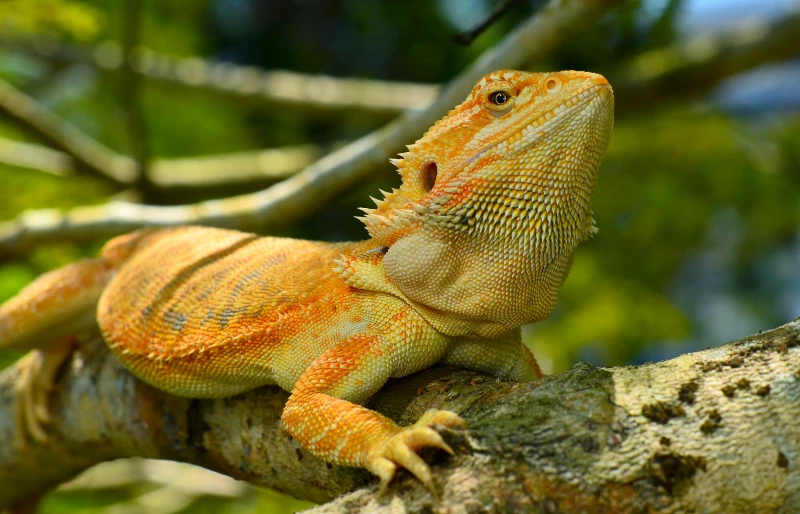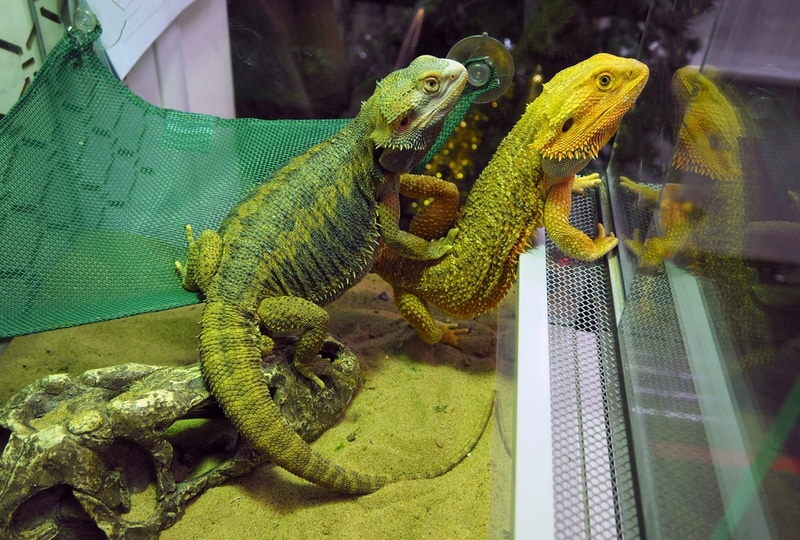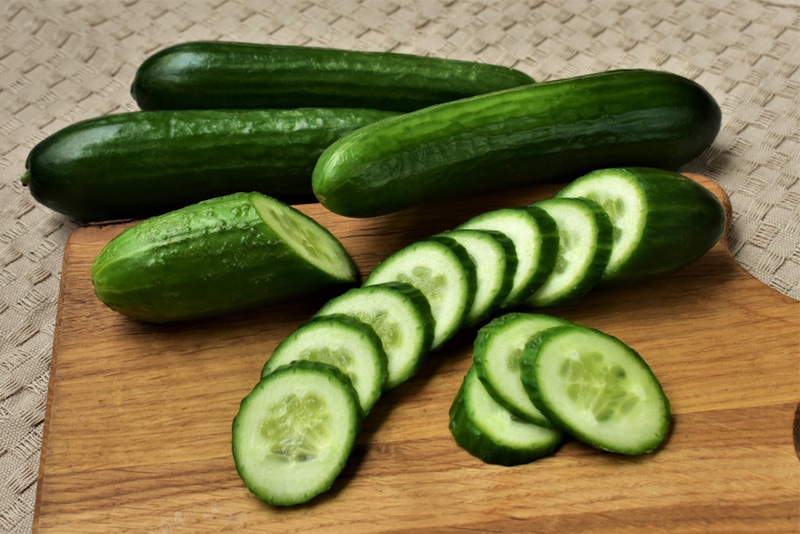Can Bearded Dragons Eat Blueberries? Vet-Approved Nutritional Facts & FAQ
By Ashley Bates
Updated on
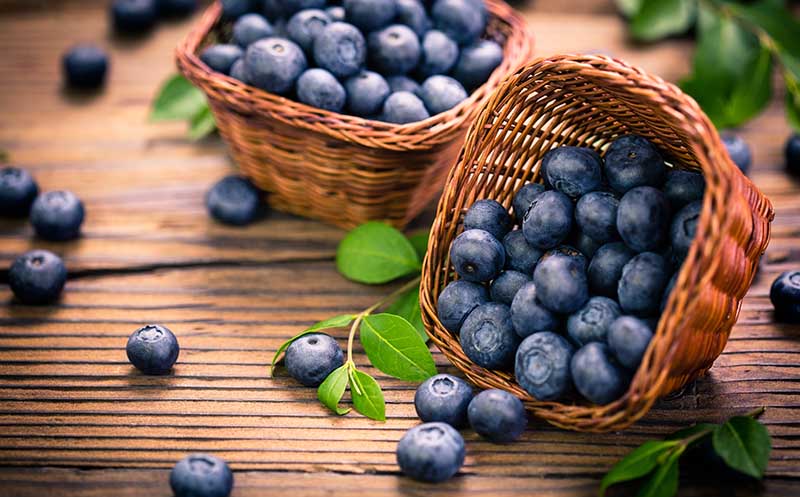
Click to Skip Ahead
Bearded dragons can have many fresh foods in their daily diets. But there are also plenty of food items that should be kept off the menu. Blueberries are small antioxidant-packed fruits that you can find at virtually any supermarket. Can beardies enjoy the benefits?
Luckily, these little superfoods are one of the safest fruits for bearded dragons. But as with all fruits, they should only play a small role in their overall diet. You’ll want to make sure you portion and serve these small delights properly so your bearded dragon continues to have a proper balanced diet.
Bearded Dragons Can Eat Blueberries
Blueberries are a big favorite among bearded dragons. They absolutely love them and gobble them up whenever they are offered. These berries pack a variety of nutritional benefits that can keep your bearded dragon healthy when portioned correctly.
So, if you add a blueberry to their weekly food mixes, it certainly will benefit them. Naturally, too much of anything is a bad thing. Giving blueberries too frequently can cause drawbacks. Let’s get into the good and the bad!
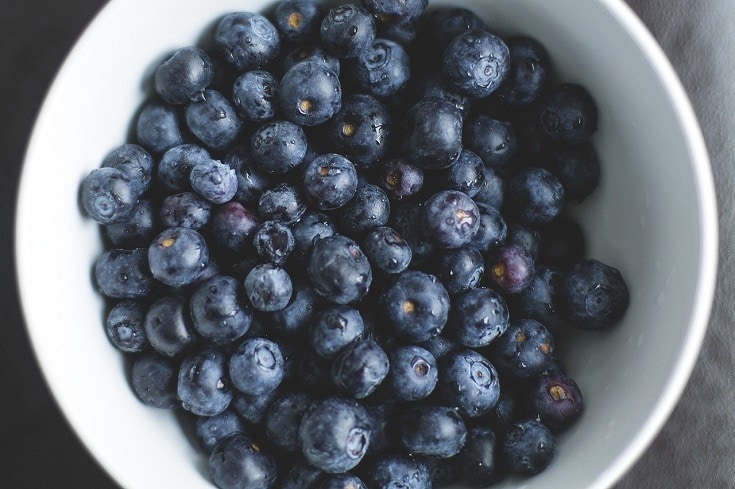
Blueberry Nutrition Facts
| Serving Size: | 0.5 cups |
| Calories: | 42 |
| Sodium: | 1 mg |
| Total Carbohydrate: | 11 g |
| Dietary Fiber: | 2 g |
| Sugar: | 7 g |
| Protein: | 1 g |
| Vitamin C: | 8% |
| Vitamin A: | 1% |
Benefits of Blueberries for Bearded Dragons
Blueberries are a valuable, easy-to-eat fruit to add to your bearded dragon’s diet. These small berries are easy to portion and contain some important nutrients and antioxidants to help keep your bearded dragon healthy.
Interestingly, blueberries contain more antioxidants than any other common fruit or vegetable.
They are also full of water content, so they get an added boost of hydration with every bite. The added water content also helps the digestive tract run smoothly, creating healthy stools and preventing constipation.
Some vitamins and minerals in blueberries include:
- Vitamin A is involved in a healthy immune system, skin and vision.
- Vitamin C is a natural immune boost that helps with overall healthfulness.
- Vitamin K helps your bearded dragon make various proteins in the body necessary for blood clotting and bone building.
- Fiber helps keep the digestive system healthy and assists in preventing constipation.
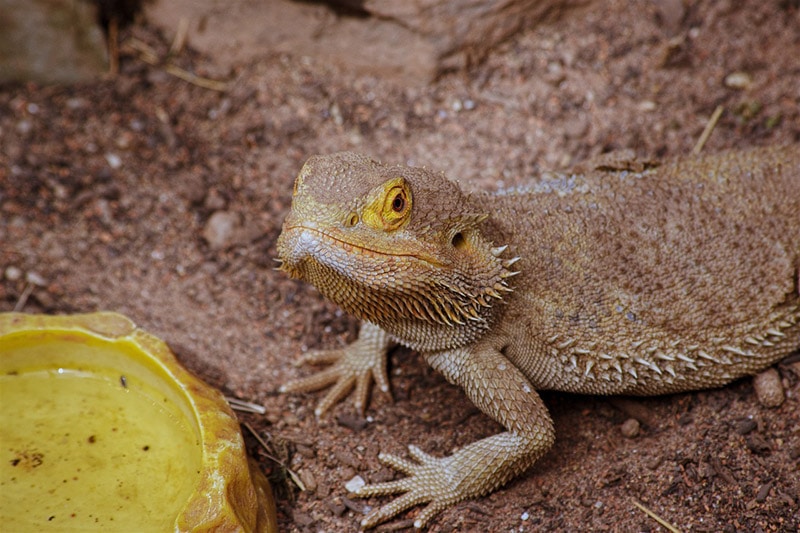
Downfalls of Blueberries for Bearded Dragons
The only major downfall of blueberries is that they are so full of natural sugar. While a few bites of this sweet berry won’t hurt your bearded dragon, it can if it is given in excess. Too much sugar can cause health issues like dental disease, diarrhea and weight gain.
Bearded dragons are omnivores and need a balanced diet containing approximately 50% animal based material (mainly insects) and the other 50% plant based foods. Of the plant based foods 80-90% should be leafy greens and only up to 10% should be fruits. The fruit offered should include a mixture of nutrient dense options and can include blueberries.
It is also very important that foods offered to bearded dragons have a balanced ratio of calcium to phosphorus. We all know that calcium is an essential part of a bearded dragon’s diet. Having too much phosphorus and too little calcium can be problematic as the phosphorus will bind the calcium in the body, which can keep it from being absorbed. Blueberries have a poor calcium-to-phosphorus ratio of approximately 1:1.6. Meaning they contain more phosphorus than calcium.
Metabolic bone disease is unfortunately one of the more common diseases of pet bearded dragons. It is usually caused by feeding an unbalanced diet that is high in phosphorus and low in calcium and/or vitamin D3. A lack of UVB light can also be a contributing factor. This is a serious condition which can lead to numerous problems including weak bones and fractures.
Blueberries will likely not cause metabolic bone disease on their own. However, feeding too many will contribute if the overall diet is out of sync.

How to Feed Your Bearded Dragon Blueberries
Roughly, you can give your bearded dragons up to four or five blueberries once a week.
The single most important thing you need to do when feeding your bearded dragon fresh blueberries is wash, wash, wash. Blueberries can have pesticides or insecticides on the surface, making your bearded dragon sick.
If you are using frozen berries, make sure they are properly thawed before feeding.
You don’t necessarily need to chop up blueberries, as they are generally very small and soft—easy for your beardie to tear through. However, cutting them in half for larger blueberries might help your scaly friend out and prevent choking.
Bearded Dragons + Blueberries: Final Thoughts
So now you know that your bearded dragon can absolutely enjoy blueberries if given correctly. Too many blueberries, as with all fruits, are not good and can lead to a few problematic issues that could be avoided.
So, remember, feed your bearded dragon a maximum of four or five blueberries weekly. This will provide the added benefits without any drawbacks. Since beardies can be very sensitive to pesticides and other chemicals in commercial fruits, wash them thoroughly or—preferably—buy organic!
See also: Can Bearded Dragons Eat Raspberries? Vet Reviewed Facts & FAQ
Featured Image Credit: pilipphoto, Shutterstock


